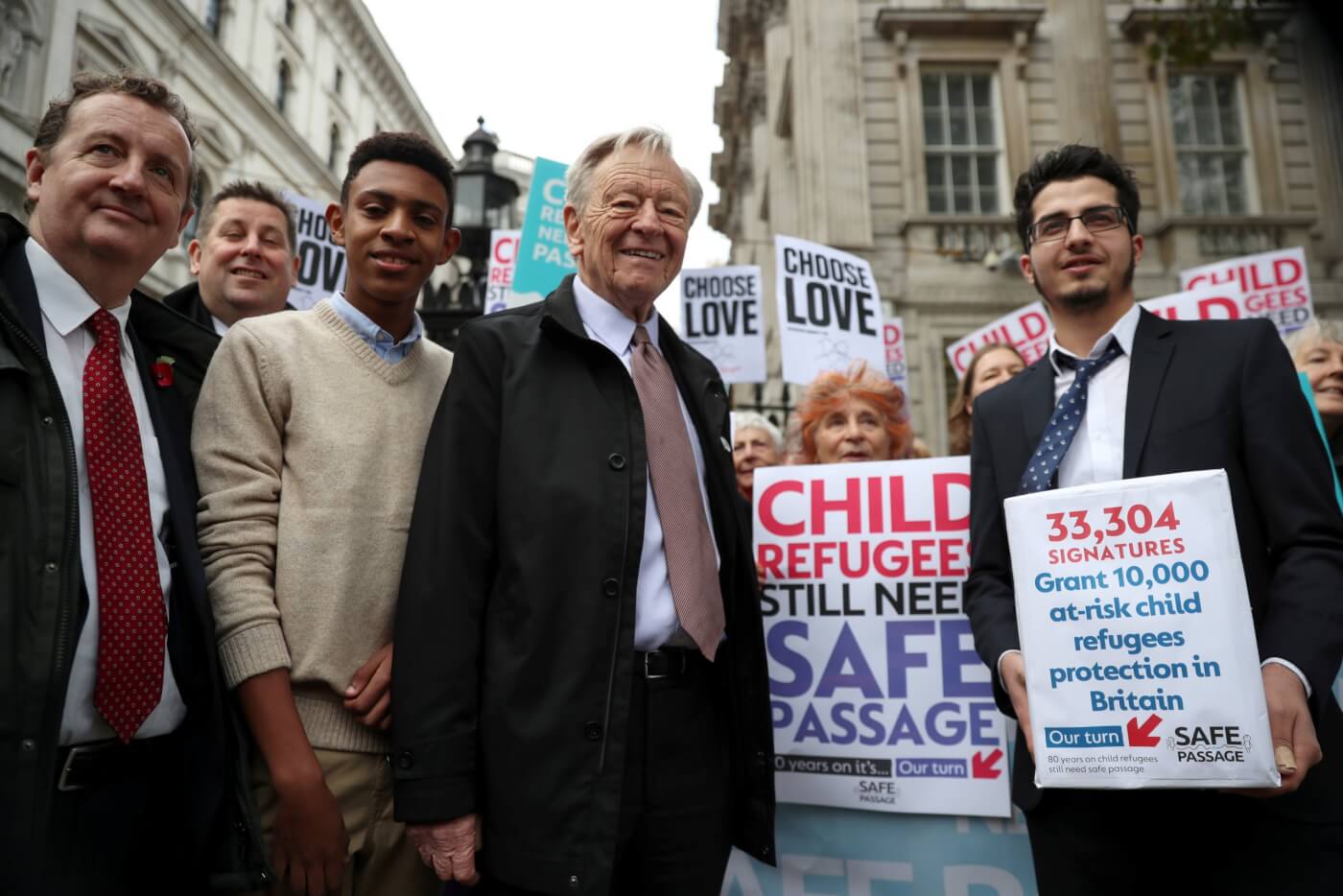The Immigration Bill, the UK Government’s flagship legislation, which will end free movement in and out of the European bloc, returned to the House of Commons last night (19 October 2020) for consideration of the Lord’s amendments.
Conservative MPs were whipped to reject all of the Lord’s amendments, including the high-profile Dubs amendment; which would have guaranteed safe legal routes for unaccompanied child refugees in Europe into the UK, as well as retained the right to family reunion in the UK (currently covered by the outgoing Dublin III regulation) after the transition period.
The Dubs amendment, named after Labour peer Lord Dubs who himself came to the UK as a child refugee, was defeated by 327 votes to 264 – a majority of 63.
Its defeat comes as a blow, signifying the removal of one of the few remaining safe legal routes to seek asylum in the UK. Campaigners, politicians and journalists have all warned that the decision will push unaccompanied children or refugees with families in the UK into seeking more dangerous routes to the UK; such as paying smugglers to take them on small boats across the channel.
Speaking during the debate, Conservative former cabinet member Karen Bradley said:
“If we want to stop the small boats, if we want to stop the migrants being under the wheel arches of vehicles, if we want to deal with this, we need to deal with it by making sure there is a safe and legal passage…If I can quote Archbishop Desmond Tutu, who said, ‘There comes a point where we need to stop just pulling people out of the river, we need to go upstream and find out why they’re falling in”
Family reunification in existing UK legislation is highly restrictive in comparison to the outgoing EU legislation. UK laws state that only children under 18 and spouses are allowed to join their family in the UK, and unaccompanied children have no ability to sponsor family members to come join them. In contrast, EU regulations ensure any refugee currently within an EU member state can join their family in the UK and apply for asylum once within the country.
Stuart McDonald, SNP Home Affairs Spokesperson, concluded during the debate that: “We have some of the most restrictive family visa rules in the world.”
The loss of yet another safe legal route means that the only remaining route into the UK is through the Vulnerable Persons Resettlement Scheme and the accompanying Global Resettlement Scheme. However as JCWI note: “Globally there are 25.4 million refugees seeking sanctuary, and this scheme only allows safe entry for less than 0.02%.”
Tim Loughton, Conservative former minister and one of only six MPs in the Government’s party to rebel, said during the debate:
“We need a Dubs II and we need a family reunion scheme regardless of Brexit….We need it, we have a great tradition of saving these children, if we don’t have it in this Bill come January 1 we will have no safe and legal route for very, very vulnerable children.”
However current Minister for Future Borders and Immigration, Kevin Foster MP, took the line that while he understood “the important issues this amendment seeks to address and confirm[s] the Government’s commitment to the principle of family unity and to supporting vulnerable children.”, it ultimately “does not make sense” to have separate provisions for child refugees in EU member states compared with those in the rest of the world.
Other notable rejections of Lord’s amendments included: an amendment that would have allowed European nationals who are victims of modern slavery to remain in the UK for 12 months on a leave to remain visa; the option for physical proof of settled status through the European Union Settlement Scheme (EUSS) and an amendment safeguarding the rights of children in care who might not directly apply for settled status through the EUSS.
Anti-Slavery International have called on MPs to now prioritise the consideration of Lord McColl and Sir Iain Duncan Smith MP’s Modern Slavery (Victim Support) Bill, which would give all victims of modern slavery gauranteed support.
Speaking during the debate, Sir Iain Duncan Smith, who previously pushed for the UK’s first modern-day slavery legislation, said:
“That legislation now needs overhauling. That has been the case for some time…I recognise that the Government are worried about people using modern-day slavery provisions as a route in, but the numbers coming in and getting a claim are so tiny that we can surely manage this.”
In his opening statement, Shadow Home Office Minister Bambos Charalambous MP criticised the decision not to provide physical proof of settled status through the EUSS, stating that:
“89% [of EU citizens’] expressed unhappiness about the lack of physical proof. Simple physical proof would provide citizens with definitive reassurance and provide instant recognition of settled status, meaning that people could continue to live in the country seamlessly following the transition period.
The Immigration Bill is now in ‘ping pong’, the stage in which legislation quickly goes between the houses as they iron out amendments. Conventionally, the House of Lords will not rebel if the Commons rejects an amendment. The Lords are due to consider yesterday’s results on Wednesday 21 October 2020.

